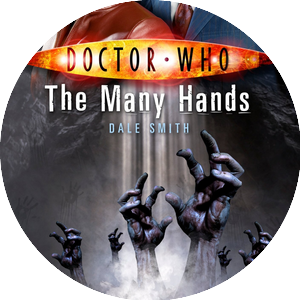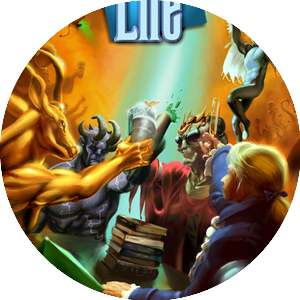Invitation
Richard Salter is a writer who – like me – cut his teeth on Doctor Who fan fiction. He got involved with the Doctor Who Information Network, and when Matt Grady moved on from being the editor of their fiction publication MythMakers, Richard took over. His first issue was their 40th Anniversary celebration, and because I’d had a story in the last issue, Richard got in touch and asked if I’d be willing to write him a story. I did, and he liked it so much that he asked me to write something for his next issue too. So I wrote the story Blossom, which became a favourite of another fan called Stuart Douglas and led him to ask me for stories when he set up Obverse Books.
Richard – like any other writer – was also establishing a career of his own. He contacted Big Finish Productions to talk about their Short Trips range of anthologies, and convinced them that he would be a good person to edit one of the books. Faced with a tight deadline, Richard had to come up with a shortlist of people to ask for stories, and preferably include a few people that the audience might have heard of. As someone with a BBC Book behind him, and someone that Richard had worked with happily before, my name ended up on the list. What I couldn’t tell him when he got in touch was that I had just been commissioned to write The Many Hands, so by the time Transmissions was published I was also the only NSA author in it. That claim to fame has since been trumped: the book also features a story by New Series writer James Moran.
Inspiration
The original inspiration for the story that eventually became Driftwood, my Transmission story, was from reading the cover blurb of a book I didn’t buy. The blurb mentioned a body in a glass coffin on a beach: it was a Snow White allusion, but it also sparked off childhood memories of Cornish beaches and desolate, big skies. The images stayed with me long after I decided not to buy the book, and I had quite a few goes at writing something that made use of them.
Getting the Story
After my first novel Heritage was published, I wrote a few pitches for follow up stories that ended up in limbo when the BBC Books range was closed down. The story that became Driftwood was one of these. That original novel pitch was intended to fill a gap in established Doctor Who history, explaining why matter transmission was the dominant form of transport on Earth one minute, and then completely gone the next. One of the sub-plots involved the translation of Cetacean vocalisation into human language, and when Richard explained the theme to me, that was the first thing to jump into my mind.
None of the plot of that pitch made it into the final story, but the major framework of the story did: the world the story takes place in is the same, and so is the history and the politics. The body in the glass box worked its way in from a proposal I’d done with Kelly Hale, and once I knew who Mel was talking to on the beach the rest of the story fell into place. Late in the day, I remembered that I’d already named the pioneer of human/dolphin communication in Heritage, and made the appropriate changes.
The Pitch
I finished the short story and sent it to Richard within the space of about a week: he read it over and had no major changes he needed. He told me that he would be writing the final story in the collection, which he intended would reuse elements of all the other stories in the collection, and I told him he was free to use anything he wanted from my story.
What Happened Next?
The collection was published in July 2008 and was very well received. However, there was no follow up: Richard instead took what he had learned and applied it to his own linked anthology, World’s Collider. This was an ambitious project, with all the authors collaborating together online to build the post-apocalyptic world the collection was set in before writing their own individual contributions. Richard did ask if I would be willing to take part, but the request arrived at the same time as my first child and I wasn’t certain I would be able to dedicate any time to writing.
But the offer was very tempting – I didn’t want to say no. So instead we agreed that I would skip the world-building stage of the project, and if any of the original authors had to drop out for any reason I would jump in and write a story to fit the gap. In the end, nobody dropped out – good news for Richard, and quite possibly for me too: my second child arrived shortly after the first, and I had an enforced three-year break from writing. I spent the time when I wasn’t trying to get babies to sleep reading as many books as I could find about writing: I have a post-graduate diploma in writing, but never learned any of the formal structures or techniques that most writing courses teach.
Those that couldn’t do, re-learned how to do instead.


